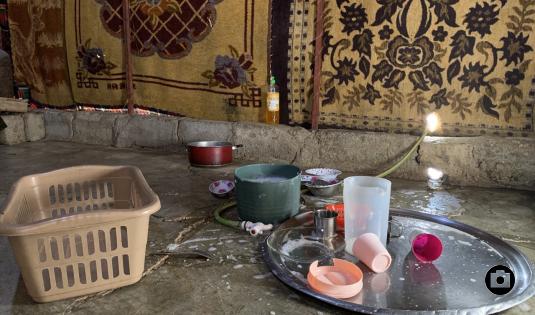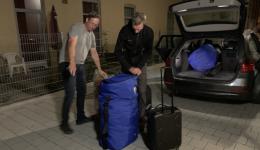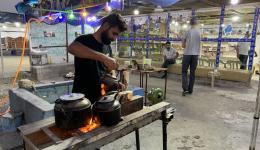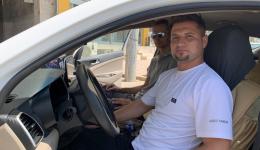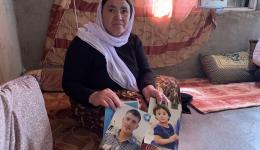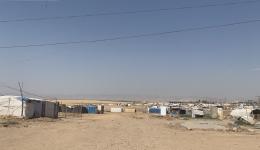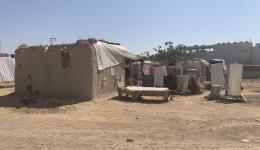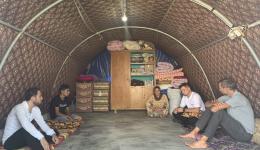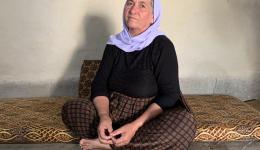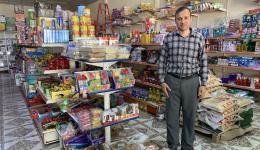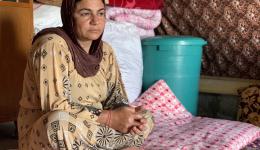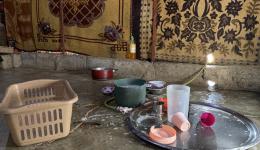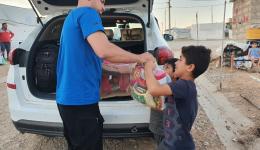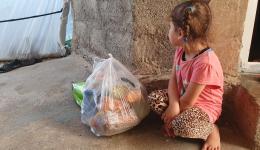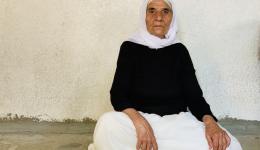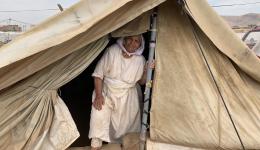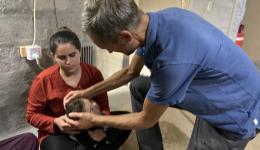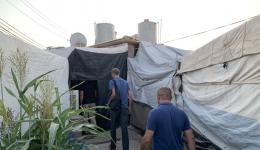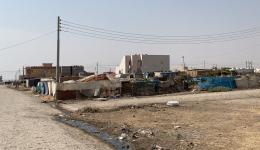Registered Nonprofit
Association for the Support
of Children and Needy
People Around the World
Unterstützung
Support of refugees in Kurdistan
KURDISTAN
We enter one of the tents in the refugee camps. A family is sitting on thin foam mats on the ground. Father, mother, two daughters. Both parents around 35 years old. The daughters about 14 and 16. They smile friendly. The few things inside the shelter are orderly.
Black tea in small glasses is served. Looks sometimes say more than words.
We wait, letting the moment sink in. At this very moment, everything is peaceful, innocent, full of hope.
Our companions Baderkhan and Jomaa introduce us.
There is something sublime about the big dark eyes watching us with undivided attention.
This moment is precious for all of us, because in a moment- when the language comes- it will vanish....
An ode to life:
"Before you speak, you mother of these beautiful daughters, let's talk about the tender herbs outside the tent entrance. Where did you get the seeds? When will you give them the needed wetness to quench their thirst, and what protection are you able to offer them in the face of the scorching heat in the Arabian midday blaze?"
"O stranger, thank you for taking part in the doings of my life. Know that everything has been given to me by life itself.
Whether from the east or from the west the wind brings the needed gifts into my hands- they will do until my strength ends.
What is it then that you want to know?
Is it the reason? The root of all life?
Experience has taught me that it is only love that in the morning makes my body, my spirit, grow strong anew, begin anew, work anew.
So, I give into others' hands what is not mine anyway.
I let go what will one day go.
I give thanks for the coming and for the going.
And know that passing away is just as much a part of life."
Quietly, the mother begins:
"Our village was occupied. We were afraid, very afraid. It was August 2014. Everyone took a few important things under his arm and together we drove in the rickety car towards the mountains. We thought that there we would have the best protection from the rebels. After a good two hours and 10 minutes, our vehicle stopped- gasoline empty.
We got out and went on by foot. Maybe four hours, my feet hurt. Neighbors and relatives were also fleeing.
Water had to be rationed, we didn't know where we could fill our bottles next time.
Children and babies were crying in the arms of their parents.
Nobody thought about tomorrow - there was no time for that. The only thing that mattered was escape.
I don't know how many days we stayed in the mountains until we passed through the various checkpoints here to the camp in Duhok (a city in Kurdistan).
Everyone living here in tents shares a similar fate. Most of the families have lost relatives. Nobody knows where they are. Whether they are still alive? We hope so."
For a moment, there is silence. The woman's eyes glaze over. She excuses herself, goes outside.
"We don't know," the father continues, "what happened to our two sons. We hope that one day they will come back home."
The father's voice also dries up. The atmosphere becomes heavier and everyone in the small tent shelter seems to be thinking about the same thing right now.
"Home" - this will not be the place where they once lived together. Where the father pursued a regular job as a carpenter, the mother took care of the household, and the children tended the goats or made themselves useful around the house after school.
"Home" is just this moment and whether it has a future, and if so, what, is uncertain....
